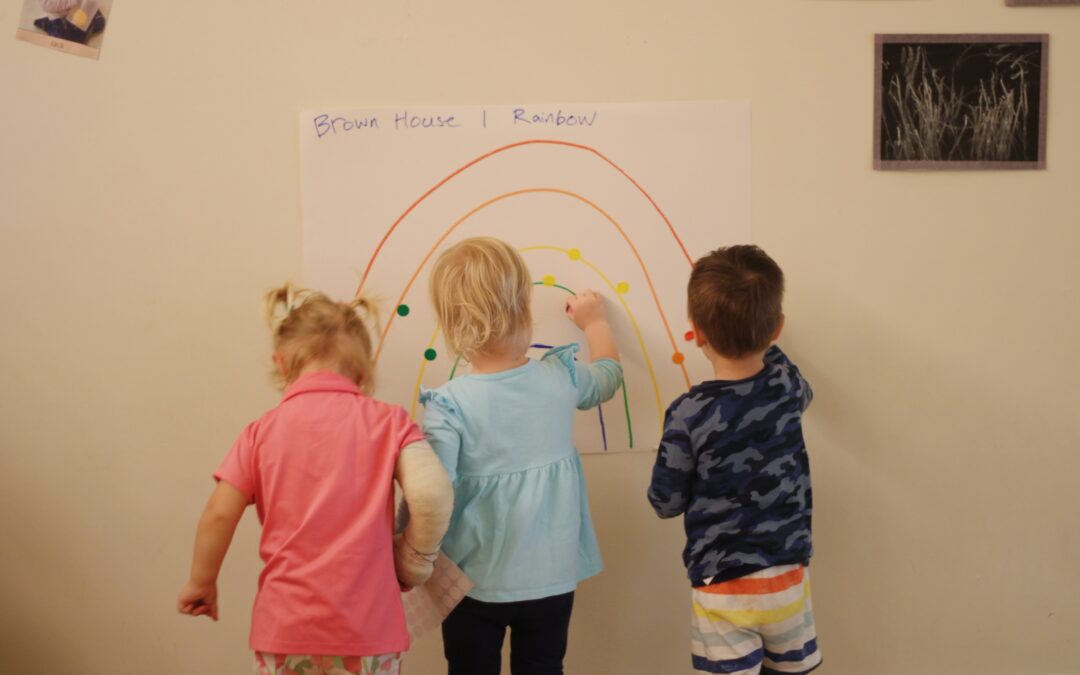“Early education and care improves the human experience and is the best investment we can make for generations of children and families.”
What You’ll Learn
- What is early childhood education and why is it important?
- What are the benefits of early childhood education and care?
- Who is responsible for providing high-quality early learning opportunities?
When I began my journey in early childhood education, I wrote the following vision statement: I believe all children deserve access to high-quality educators who provide holistic learning experiences that allow children to reach their full potential.
This vision has remained the same and continues to be something I advocate for; however, I now understand that high-quality educators are not the only piece of the puzzle to support positive development. Here is my vision statement now, eight years later: I believe all children deserve access to high-quality early education and care that values educators’ experiences and character, provides intentional and holistic learning opportunities, and collaborates with parents and caregivers to create a foundation for future success.
Attending to all the needs of children, parents, and educators is not a small feat, and is not always possible given factors such as public funding. SolBe is not immune to this challenge, however, we are committed to growth and providing high-quality education and care to support individuals in their journey to thrive. SolBe has created a nurturing, positive, and holistic early education experience for children and families in collaboration with our community.
Early Childhood Education
Early childhood education begins at birth and provides young children with the skills and knowledge necessary to become lifelong learners and successful members of society. This positive experience happens within the context of high-quality early education programs that promote a safe and nurturing learning environment.
High-quality early education and care provides opportunities for children to explore the world around them while becoming thriving individuals. Early education and care improves the human experience and is the best investment we can make for generations of children and families.
Benefits of Early Education and Care
Several studies, including the Perry Preschool Project and the Abecedarian Project, were conducted to test the short- and long-term benefits of early childhood education. Findings from these studies demonstrate that high-quality early education and care can deliver a 13% economic return on investment (Heckman et al., 2016) and narrows the opportunity gap. Findings also demonstrate that early education and care produces significant educational, economic, and social-emotional outcomes for individual success.
Children who experience high-quality early education and care are more likely to:
- perform better in school and gain higher reading and math test scores
- graduate high school
- enroll in college and complete a bachelor’s degree or higher
- earn higher wages
- avoid substance use and crime
- have better physical and mental health
High-Quality Early Education and Care: A Collaborative Effort
Intentional and positive early experiences have lasting benefits for individuals and the larger community; however, these experiences are dependent on the decisions we make as adults for our youngest and most vulnerable population.
The responsibility to provide these types of early experiences is often left to parents and caregivers, even though additional responsive relationships and supportive environments outside the home have a significant positive impact on young children’s development. Nurturing thriving individuals and providing high-quality experiences of early education and care is a collaborative effort. It is everyone’s responsibility to ensure young children are supported in the best way possible.
Empowering Takeaways
- Early education and care is an investment necessary for individual and community success.
- Early childhood education supports short- and long-term learning and development.
- High-quality early learning experiences are a human right and are the responsibility of all members of society.
Be vibrant and keep thriving!
This article was last reviewed or updated on October 27, 2023.
References
Campbell, F., Pungello, E., Burchinal, M., Kainz, et al. (2012, January). Adult outcomes as a function of an early childhood educational program: An abecedarian project follow-up. Developmental Psychology. doi: 10.1037/a0026644
Heckman, J., García, J., Leaf, D., and Prados, M. (2016). The life-cycle benefits of an influential early childhood program. The Heckman Equation. https://heckmanequation.org/wp-content/uploads/2017/01/F_Heckman_CBAOnePager_120516.pdf
Likhar, A., Baghel, P., & Patil, M. (2022). Early childhood development and social determinants. Cureus, 14(9). doi: 10.7759
NC Department of Health and Human Services. (n.d.). Why early childhood matters. https://www.ncdhhs.gov/about/department-initiatives/early-childhood/why-early-childhood-matters#:~:text=Early%20childhood%20experiences%20from%20birth,future%20learning%2C%20behavior%20and%20health.
Peeters, L. (2022, March). A good life depends on a strong start. Teach for Austria. https://www.linkedin.com/pulse/good-life-depends-strong-start-teachforaustria#:~:text=The%20early%20years%20of%20life,healthy%2C%20fair%20and%20peaceful%20society.
Start Early. (2023). Why early childhood education. https://www.startearly.org/why-early-childhood/?oc=EMM-FY24-ONG-PSG-GOO-GEN-XXX-earlyedu_issue&ms=FY24-ONG-PSG-GOO-GEN-XXX-earlyedu_issue&gad=1&gclid=CjwKCAjw-eKpBhAbEiwAqFL0mk9SXuQ1ubRJZPXzfxDhAP1EYzbnaWBMvMqSRsL9jeB5_9vFbgDBJhoC8egQAvD_BwE
Schweinhart, L. et al. (2005). Lifetime effects: The high/scope perry preschool study through age 40. High/Scope.



